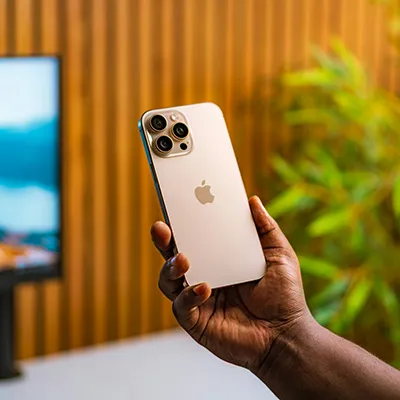FirstName, here’s where you’ll find helpful tips, tools and support.
This section offers helpful tips, FAQs, and guidance designed to support you at every stage. Whether you’re just getting started or looking to improve how you present as a role model, you’ll find practical information here. We're always available if you have questions.
Role Model Resources – Tips, Preparation, and Inspiration
Here you’ll find everything you need to prepare for your session, engage students, and share your story. Use these resources to feel confident and make the most of your time as a role model.

Preparation Essentials
Before you deliver your session, here are the key items to bring and important checks to make sure everything runs smoothly.
- Visual aids, snacks, water
- USB presentation backup
- Working With Children Check - each state/territory has their own. Not required for virtual sessions
- Virtual session setup - do you get consistent signal?
- No photos/screenshots policy, unless decided prior to the session
If you’re presenting online, use this list to test your equipment and get set up for a successful virtual session.
- Test microphone, speaker, connection
- Provide virtual tours if possible

Preparation Delivery Tips
Your energy and attitude make a big difference. These reminders will help you create a welcoming and encouraging environment.
- Smile, show energy, be authentic. Participants want to hear the passion in your voice and see it in your movement.
Here are some tips to help you communicate effectively, avoid acronyms and industry only language, and make sure everyone feels included.
- Avoid jargon and acronyms
- Explain acronyms if used
- Keep it PG where needed, remember your audience
These ideas can help you involve students, keep their attention and make your session interactive.
- Allow participants time to process your words and questions
- Ask questions from the audience, even if it's just a broad questions for them to think about
- Use movement, example wonder the stage or use your hands

Telling Your Story
Use these prompts to prepare your personal story in a way that feels authentic and relatable. Speak as if speaking to 12-14 year olds to get the most engagement.
- Introductions, explain your job, paint the picture for your audience
- What inspired you to start in your career
- Your day-to-day, what gets you out of bed in the morning. How could your audience get into your job?
Here are sample questions you might ask to engage students and invite them into the conversation.
- “Does anyone know anything about {insert your job title here}?”
- “I played soccer all through school. Does anyone here play sports?” Follow up: “What sports do you play?”
- I was born in (state/country). Has anyone been there? Did anyone else move far from home in your childhood?”

Hosting an Onsite Tour or Workshop
Onsite Tours and workshops are always received extremely well. You can't be what you can't see or do. Our recommendation is to plan any onsite tour or workshop at least 3 months in advance
- Timeframes - allow 30-45 minutes for a tour and up to 4 hours for a hands-on workshop
- Permissions - Keep in mind any privacy/secure products internally. A minimum 5 weeks is required for school excursion permissions. Photos of backs of heads allowed but any facial photos will require photo consent from individuals over 18, or parents for young people under 18.
- Group size - How many facilitators do you have? Consider 1 tour guide or facilitator for 12-15 people.
- Transport considerations - Is there bus parking? Could you provide a bus? Could the group take public transport?
Explore ways to keep students interested and hands-on during your site visit.
- Narrate spaces - What jobs titles work here? What do they do?
- Encourage interaction - Ask broad questions and allow time for individual questions throughout
- Hands-on activities - always received well. Could your hands-on activity include an item they can make or take home, or donate to a community or charity?
Review these tips for explaining guidelines to students before you begin.
- Mobile phone use and personal protective equipment
- Asking questions - will participants have time at the end to connect with Employees?
- Attention signals and the bathroom location (plus any permissions participants need to be aware of)

Example Student Questions
Students may ask questions about your job and training. This list can help you prepare your answers.
Questions students may ask you as a young person:
- What was your first job?
- When you were our age, what did you think you would do for a career?
- What did you look forward to the most when you were younger?
- Was there a catalyst moment that took you to this career path? Story?
- What subjects in school did you find useful for future employment?
- What subjects at school interested you in primary and/or secondary school?
- What were your positive influencers in primary school e.g. excursions/incursions/activities you remember?
- Did you have an inspirational person who helped shape your career path?
- Knowing what you know now, what would you include in Education?
- If you could talk to your school age self, what advice would you give?
- Are you still doing the job you thought you would in High School?
Education and skill building advice:
- What was the most difficult part of school for you?
- How do I decide what classes to take for a career in technology or engineering?
- What kinds of skills should I start learning now?
- What are some ways you’ve built your confidence?
- What entry level jobs or volunteering is available in your field?
- What should I do now to learn more about my career options in STEM?
- How do I choose what jobs I should apply for?
- Do you have any advice on how to prepare for a job interview?
- How did you pay for your education?
- When should I start looking into scholarships, grants, or loans and how do I find them?
- Does your company offer apprenticeships, traineeships, cadetships or internships?
- If you were to employ someone from this room, what are you looking for? (curiosity, resilience, emotional regulations)
- What wages per hour should a newcomer expect in your industry?
Your current career:
- How did you figure out what to do for a career?
- What did you consider when deciding to take this job?
- What is your favourite part of your workday/workweek?
- What is an example of a project you have worked on that was interesting to you?
- What is an example of a problem you helped solve?
- Tell us about a time you had to ask for help at your job.
- What do you get to do because of your job that you wouldn’t get to do otherwise?
- What is the biggest mistake you've made at work?
- What is the hardest part of your job?
- What is your office/workspace like?
- What is the starting salary for someone in your job?
- What does your company look for when they are hiring someone?
- How does your current job include STEM?
- Does your job give you a sense of purpose? Why/How?
- In your job, what keeps you motivated and passionate?
- What skills come naturally to you that spark your career choices?
- Is there anything about the job you don’t like?
- Was there an individual or catalyst event that sparked your interest in your industry?
- Was there a particular industry you didn’t want to work in and why?
- What are your personal qualities that you use as a strength in your working environment?
- What practical skills do you wish you had?
- Jumping forward a year, what would you have liked to achieve in the past year at work?
Students might also ask about your life experiences. These examples can guide your responses.
- What are the biggest lessons you’ve learnt in your career?
- Who are you most inspired by? Why?
- Who would you love to meet? and what would you ask?
- If you could make one change in the world, what would that be?
- What habit would you most like to break? What habit would you most like to start?
- Think of a person you truly admire. What qualities do you like most about that person?
- When was the last time you did something you were afraid of?
- What achievement are you most proud of?
- What qualities do you admire in others?
- What is the best advice you've ever gotten?
- Did you have any mentors or people you admired who helped you?
- What do you like to do outside of work?
- What is your favourite technology or gadget?
- How do you keep up with changes in technology?
- Pretend money is no object, what job would you do?
- Jumping forward a year, what would you have liked to achieve in the past year in your personal life?

Language and inclusivity
Here are some reminders to help you use language that is age-appropriate, inclusive and respectful of every participant.
- Remember your audience! Be sure to explain technical words or acronyms. We recommend for best engagement, talk to everyone like they're 12-14 years old.
Example:
“I’m a Project Manager – that means I’m the boss of my team! Have you ever had to work together with your friends to do something for school? I’m like your teacher; I tell my team what needs to get done and I help everyone learn how to do it!”
- Please don't assume pronouns when addressing students. Use they/them, general references like “your classmate,” or identifying details (“the student in the back with the red shirt”).
You can access additional materials here to support your preparation.
